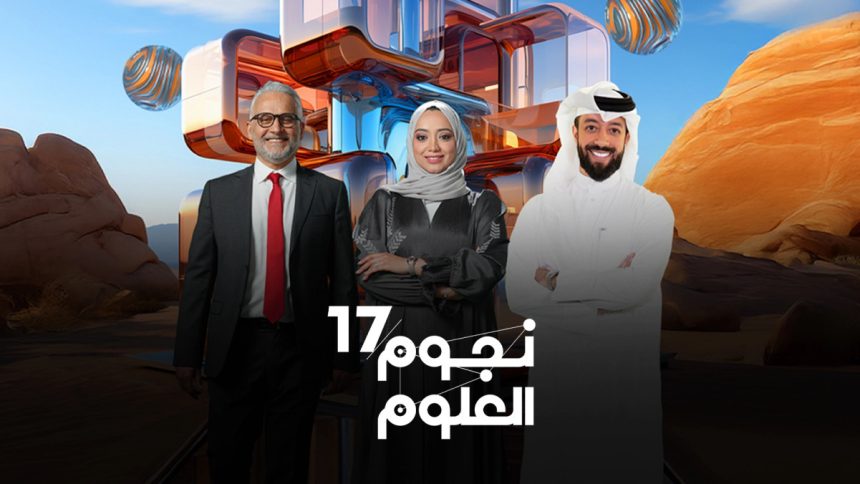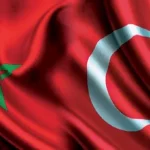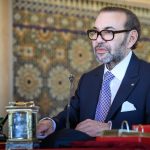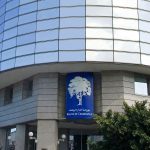Across the Arab world, Stars of Science is demonstrating how to innovate, transforming experimentally novel ideas into tangible solutions while inspiring millions of young minds.
Since its inception in 2009, Stars of Science, hosted at Qatar Science and Technology Park (QSTP), a member of Qatar Foundation, has become a catalyst for innovation across the Arab world.
Over 313 episodes have been aired across 17 seasons for purposeful broadcasting towards a productive culture, building a network of 175 role models from 18 Arab countries and helping to launch more than 55 alumni-founded businesses across diverse sectors.
“Stars of Science is not just a television programme but a reflection of a real and thriving innovation ecosystem. It provides a unique platform that bridges the gap between scientific research and technological innovation, transforming ideas especially academically proven into demonstrated prototypes within a 12-week period,” explained Innovation Consultant and Jury Member Professor Fouad Mrad.
Participants benefit from expert mentorship, access to world-class facilities, and exposure to diverse jury members, ranging from academics and scientists to entrepreneurs and startup founders.
Beyond technical hands-on skills, they acquire entrepreneurial lessons that prepare them to bring solutions to market as founders, mentors, or thought leaders. “The programme has inspired millions by making science accessible, practical, purposeful, and engaging, especially for Arab youth,” Mrad added.
Rigorous selection and mentorship
Selection for the programme follows a thorough process. Candidates submit applications online, which are sorted based on specialization, dispatched to and reviewed by a pool of relevant experts across scientific, technical, and professional domains.
Projects are evaluated on novelty and soundness of a scientifically based concept, feasibility of producing a functional prototype within two months, and relevancy to society and market.
Selected candidates are invited to pitch their ideas and implementation in front of a diverse jury that includes academics, and practitioners.
“The cohorts gain access to mentorship from QF and Qatar’s wider R&D ecosystem, QSTP’s incubation and acceleration programs, world-class facilities, advanced prototyping labs, and access to funding. Mentorship goes beyond technical refinement, equipping candidates with entrepreneurial know-how and guiding them to turn early-stage concepts into minimum viable products (MVPs). It is this backbone of mentorship and partnerships that transforms raw ideas into real, practical, and ready solutions,” said Mrad.
Season 17: Innovations for a changing world
Season 17 of Stars of Science highlights a renewed focus on addressing pressing challenges, covering a wide range of fields. These include medical and surgical innovation, with real-time guidance systems and 3D simulation platforms, as well as wellbeing technologies, such as wearables and gamified rehabilitation tools. The season also sheds light on environmental sustainability and marine protection through eco-friendly solutions and AI systems supporting green energy.
The mentorship structure has also been strengthened, offering more personalized guidance and access to QSTP’s advanced facilities, allowing candidates to refine their concepts into minimum viable products.
Each finalist brings a unique vision: some aim to enhance healthcare precision and rehabilitation, others focus on renewable energy and environmental protection, and some draw inspiration from nature to solve complex problems.

For example, Mohamed Kahna from Tunisia is developing a real-time surgical guidance system that mimics GPS in the operating room, enhancing laparoscopic surgery. “I want this system to ensure surgeons have clear guidance in their most critical moments,” he said.
Khaldoun Megdady from Jordan is developing a 3D coronary artery simulation platform. The invention enables surgeons to rehearse bypass procedures using AI-generated anatomical models. “This is rehearsal before reality, it gives surgeons a chance to prepare in detail, which can mean safer and more precise procedures,” he explained.
Beyond the technical aspects, this season encourages candidates to consider the broader societal value of their innovations, fostering a culture of responsible innovation and entrepreneurship.
Environmental sustainability also features prominently. Mohammed Al Mur Al Salmi from Oman developed an enzyme-based spray to prevent bacterial buildup on underwater marine surfaces and structures, offering an eco-friendly alternative to toxic coatings.
“Our economy depends on the ocean. I wanted to protect what gives us life,” he said.
Health and human wellbeing are central to other projects. Saudi contestant Razan Bahabri focuses on gamified stroke rehabilitation therapy, enabling engaging exercises with remote monitoring by clinicians. “Rehabilitation therapy doesn’t have to be repetitive,” she noted.
Beyond the cameras: Sustaining innovation
Unlike many competitions, Stars of Science extends support long after cameras stop rolling by showcasing the success of its alumni and giving them visibility and international recognition. Some innovators are mentioned in national curriculum textbooks as modern times inventors.
Winners of the first and second prizes receive USD 300,000 and USD 100,000 respectively, providing substantial seed funding to advance their innovations beyond the prototype stage.
Alumni remain connected to QSTP and Qatar Foundation’s broader R&D ecosystem, accessing mentorship, incubation, funding, partnership and media opportunities.
“This is what makes the programme an illustrative launchpad rather than just a show. It celebrates STEM champions, and equips innovators with visibility, confidence, and recognition to contribute as capable ambassadors and impactful drivers of change across communities in the Arab countries,” Mrad explained.
Several alumni exemplify the programme’s mission:
- Ahmad Nabeel (S9, Kuwait) developed KLENS, a self-cleaning laparoscopic camera system, now recognised globally by partnering with Mayo clinic, and serves as a guest juror on the programme.
- Yaman Tayyar (S16, Syria) advanced his gene-therapy assist device, being incubated at QSTP and now mentors Season 17 candidates.
- Majed Lababidi (S3, Syria) launched multiple startups in Qatar and is now Director of Ecosystem Integration at Alchemist Accelerator Doha.
- Hassan Al-Balawi (S7, KSA) saw his AI-based workplace safety startup, WakeCap Technologies across the GCC construction landscape, secured major funding and international partnerships.
- Eiman Al-Hamad (S12, Qatar) created an Arabic voice-phishing detection tool that gained international recognition and now mentors participants in Season 17.
- Nada El-Kharashi (S16, Egypt), a biotech designer in Qatar, recognized for her entrepreneurial journey and featured on the Forbes 30 Under 30 list, underscoring the caliber of alumni the programme produces.
“These journeys showcase how Stars of Science program continues to inspire young Arabs, spark creative ideas, apply their knowledge, harness available resources, kick-start successful products, and demonstrate that Arab innovators can produce locally and market globally,” said Mrad.
Shaping national and regional innovation
Connecting university to local industry has been a lasting objective of every economy. “Learn to Earn” has been a motto for all societies, but it is essential for Arab countries suffering from youth unemployment especially among the educated generations, and modest production added value.
Mrad highlighted that Stars of Science demonstrated experimentally the promising potential embedded within our society, education landscape, innovation ecosystem and indirectly promoted the impactful interface and partnerships among public policy making, education, and industry.
It aligns with Qatar National Vision 2030 by promoting STEM education, youth empowerment, and a knowledge-based economy, while reinforcing Qatar’s role as a hub for research and innovation.
Through collaborations with academia, industry, and the private sector, the programme creates pathways for prototypes to grow into viable products and scalable startups.
Mrad added, “The long-term legacy will be generations of Arab innovators who credit the programme as their first inspiration, shifting the region’s culture from consumption to production.”
Rephrase in a different way as if you were a native American speaker as a content creation expert and do not talk about yourself or your experience in the text and do not show yourself as an artificial intelligence who wrote and fill the bullet point in the topic and speak the heart of the topic itself and dont take date of blog in ther first and dont take text like box of newsliter subscribe on post from contentand romove all linke insert in content and and remove all affiliate disclosure phrases on content like this “This post may contain Amazon or other affiliate links that allow us to earn a small commission at no extra cost to you. Please see our Disclosure Policy for more info” and “#” put in its place bullet point, and romove name of the web site or his links we are take a content from our new creation, and don’t publish clone new content more than just one time








